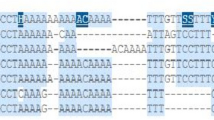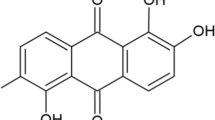Abstract
Autophagy plays a critical role in cancer, since it can either suppress tumorigenesis by inhibiting cancer cell survival, or facilitate tumorigenesis by promoting cancer cell proliferation and tumor growth. However, the role of genetic variants of autophagy-regulated key genes for bladder cancer risk remained unclear. Here, we aimed to explore the association of bladder cancer with genetic variants on genes involved in autophagy pathway. Gene-based analysis was performed with multi-marker analysis of genomic annotation (MAGMA) in 580 bladder cancer cases and 1101 controls. The logistic regression model was used to calculate the SNP effects on bladder cancer susceptibility. Expression quantitative trait loci (eQTL) analysis was conducted by the genotype-tissue expression (GTEx) project. Gene expression was evaluated based on the Cancer Genome Atlas (TCGA) database. Three potentially functional SNPs RPS6KB1 rs1292038, PIK3R1 rs34303, and rs56352616 were demonstrated to be associated with risk of bladder cancer (OR = 0.71, 95% CI = 0.61–0.82, P = 7.88 × 10−6 for rs1292038; OR = 1.25, 95% CI = 1.09–1.45, P = 2.11 × 10−3 for rs34303; OR = 0.74, 95% CI = 0.62–0.90, P = 2.47 × 10−3 for rs56352616). An increasing number of risk genotypes of these three SNPs were associated with a higher risk of developing bladder cancer. Besides, rs1292038 exhibited an eQTL effect for RPS6KB1 in whole blood (P = 3.90 × 10−7). Furthermore, the higher expression of RPS6KB1 and lower expression of PIK3R1 were both significantly associated with bladder cancer risk. Our findings indicated that genetic variants in autophagy pathway genes RPS6KB1 and PIK3R1 confer bladder cancer susceptibility.


Similar content being viewed by others
References
Ahmadi KR, Weale ME, Xue ZY et al (2005) A single-nucleotide polymorphism tagging set for human drug metabolism and transport. Nat Genet 37(1):84–89. https://doi.org/10.1038/ng1488
Amaravadi RK, Kimmelman AC, Debnath J (2019) Targeting Autophagy in Cancer: Recent Advances and Future Directions. Cancer Discov 9(9):1167–1181. https://doi.org/10.1158/2159-8290.CD-19-0292
Antoni S, Ferlay J, Soerjomataram I, Znaor A, Jemal A, Bray F (2017) Bladder Cancer Incidence and Mortality: A Global Overview and Recent Trends. Eur Urol 71(1):96–108. https://doi.org/10.1016/j.eururo.2016.06.010
Bahrami BF, Ataie-Kachoie P, Pourgholami MH, Morris DL (2014) p70 Ribosomal protein S6 kinase (Rps6kb1): an update. J Clin Pathol 67(12):1019–1025. https://doi.org/10.1136/jclinpath-2014-202560
Cai C, Chen QB, Han ZD et al (2015) miR-195 Inhibits Tumor Progression by Targeting RPS6KB1 in Human Prostate Cancer. Clin Cancer Res 21(21):4922–4934. https://doi.org/10.1158/1078-0432.CCR-15-0217
Cao S, Shen WB, Reece EA, Yang P (2020) Deficiency of the oxidative stress-responsive kinase p70S6K1 restores autophagy and ameliorates neural tube defects in diabetic embryopathy. Am J Obstet Gynecol 223(5):753 e1-753 e14. https://doi.org/10.1016/j.ajog.2020.05.015
Catalan V, Gomez-Ambrosi J, Rodriguez A et al (2015) Expression of S6K1 in human visceral adipose tissue is upregulated in obesity and related to insulin resistance and inflammation. Acta Diabetol 52(2):257–266. https://doi.org/10.1007/s00592-014-0632-9
Chen M, Gu J, Delclos GL et al (2010) Genetic variations of the PI3K-AKT-mTOR pathway and clinical outcome in muscle invasive and metastatic bladder cancer patients. Carcinogenesis 31(8):1387–1391. https://doi.org/10.1093/carcin/bgq110
Chen W, Zheng R, Baade PD et al (2016) Cancer statistics in China, 2015. CA Cancer J Clin 66(2):115–132. https://doi.org/10.3322/caac.21338
Chen B, Yang L, Zhang R et al (2017) Hyperphosphorylation of RPS6KB1, rather than overexpression, predicts worse prognosis in non-small cell lung cancer patients. PLoS One 12(8):e0182891. https://doi.org/10.1371/journal.pone.0182891
Cizkova M, Vacher S, Meseure D et al (2013) PIK3R1 underexpression is an independent prognostic marker in breast cancer. BMC Cancer 13:545. https://doi.org/10.1186/1471-2407-13-545
Cumberbatch MGK, Jubber I, Black PC et al (2018) Epidemiology of bladder cancer: a systematic review and contemporary update of risk factors in 2018. Eur Urol 74(6):784–795. https://doi.org/10.1016/j.eururo.2018.09.001
de Leeuw CA, Mooij JM, Heskes T, Posthuma D (2015) MAGMA: generalized gene-set analysis of GWAS data. PLoS Comput Biol 11(4):e1004219. https://doi.org/10.1371/journal.pcbi.1004219
Devis-Jauregui L, Eritja N, Davis ML, Matias-Guiu X, Llobet-Navas D (2020) Autophagy in the physiological endometrium and cancer. Autophagy. https://doi.org/10.1080/15548627.2020.1752548
Fenton TR, Gout IT (2011) Functions and regulation of the 70kDa ribosomal S6 kinases. Int J Biochem Cell Biol 43(1):47–59. https://doi.org/10.1016/j.biocel.2010.09.018
Figueroa JD, Ye Y, Siddiq A et al (2014) Genome-wide association study identifies multiple loci associated with bladder cancer risk. Hum Mol Genet 23(5):1387–1398. https://doi.org/10.1093/hmg/ddt519
Huang Z, Wang X, Ma L et al (2020) Genetic variations in Hippo pathway genes influence bladder cancer risk in a Chinese population. Arch Toxicol 94(3):785–794. https://doi.org/10.1007/s00204-020-02663-z
Hussain SS, Huang SB, Bedolla RG et al (2018) Suppression of ribosomal protein RPS6KB1 by Nexrutine increases sensitivity of prostate tumors to radiation. Cancer Lett 433:232–241. https://doi.org/10.1016/j.canlet.2018.07.009
Katheder NS, Khezri R, O’Farrell F et al (2017) Microenvironmental autophagy promotes tumour growth. Nature 541(7637):417–420. https://doi.org/10.1038/nature20815
Levy JMM, Towers CG, Thorburn A (2017) Targeting autophagy in cancer. Nat Rev Cancer 17(9):528–542. https://doi.org/10.1038/nrc.2017.53
Li L, Plummer SJ, Thompson CL, Tucker TC, Casey G (2008) Association between phosphatidylinositol 3-kinase regulatory subunit p85alpha Met326Ile genetic polymorphism and colon cancer risk. Clin Cancer Res 14(3):633–637. https://doi.org/10.1158/1078-0432.CCR-07-1211
Li X, Mak VCY, Zhou Y et al (2019) Deregulated Gab2 phosphorylation mediates aberrant AKT and STAT3 signaling upon PIK3R1 loss in ovarian cancer. Nat Commun 10(1):716. https://doi.org/10.1038/s41467-019-08574-7
McLean MH, El-Omar EM (2014) Genetics of gastric cancer. Nat Rev Gastroenterol Hepatol 11(11):664–674. https://doi.org/10.1038/nrgastro.2014.143
Mowers EE, Sharifi MN, Macleod KF (2017) Autophagy in cancer metastasis. Oncogene 36(12):1619–1630. https://doi.org/10.1038/onc.2016.333
Nicoletti P, Aithal GP, Bjornsson ES et al (2017) Association of liver injury from specific drugs, or groups of drugs, with polymorphisms in HLA and other genes in a genome-wide association study. Gastroenterology 152(5):1078–1089. https://doi.org/10.1053/j.gastro.2016.12.016
Rebecca VW, Amaravadi RK (2016) Emerging strategies to effectively target autophagy in cancer. Oncogene 35(1):1–11. https://doi.org/10.1038/onc.2015.99
Rothman N, Garcia-Closas M, Chatterjee N et al (2010) A multi-stage genome-wide association study of bladder cancer identifies multiple susceptibility loci. Nat Genet 42(11):978–984. https://doi.org/10.1038/ng.687
Sanchez-Carbayo M, Socci ND, Lozano J, Saint F, Cordon-Cardo C (2006) Defining molecular profiles of poor outcome in patients with invasive bladder cancer using oligonucleotide microarrays. J Clin Oncol 24(5):778–789. https://doi.org/10.1200/JCO.2005.03.2375
Siegel RL, Miller KD, Jemal A (2019) Cancer statistics, 2019. CA Cancer J Clin 69(1):7–34. https://doi.org/10.3322/caac.21551
Taniguchi CM, Winnay J, Kondo T et al (2010) The phosphoinositide 3-kinase regulatory subunit p85alpha can exert tumor suppressor properties through negative regulation of growth factor signaling. Cancer Res 70(13):5305–5315. https://doi.org/10.1158/0008-5472.CAN-09-3399
Wang M, Li Z, Chu H et al (2016) Genome-wide association study of bladder cancer in a chinese cohort reveals a new susceptibility locus at 5q12.3. Cancer Res 76(11):3277–3284. https://doi.org/10.1158/0008-5472.CAN-15-2564
Witjes JA, Lebret T, Comperat EM et al (2017) Updated 2016 EAU Guidelines on Muscle-invasive and Metastatic Bladder Cancer. Eur Urol 71(3):462–475. https://doi.org/10.1016/j.eururo.2016.06.020
Witjes JA, Bruins HM, Cathomas R et al (2021) European association of urology guidelines on muscle-invasive and metastatic bladder cancer: summary of the 2020 guidelines. Eur Urol 79(1):82–104. https://doi.org/10.1016/j.eururo.2020.03.055
Xiong Q, Liu A, Ren Q et al (2020) Cuprous oxide nanoparticles trigger reactive oxygen species-induced apoptosis through activation of erk-dependent autophagy in bladder cancer. Cell Death Dis 11(5):366. https://doi.org/10.1038/s41419-020-2554-5
Zhu J, Tian Z, Li Y et al (2019a) ATG7 promotes bladder cancer invasion via autophagy-mediated increased ARHGDIB mRNA stability. Adv Sci (weinh) 6(8):1801927. https://doi.org/10.1002/advs.201801927
Zhu Y, Ke J, Gong Y et al (2019b) A genetic variant in PIK3R1 is associated with pancreatic cancer survival in the Chinese population. Cancer Med 8(7):3575–3582. https://doi.org/10.1002/cam4.2228
Acknowledgements
The authors would like to thank Professor Meilin Wang ((Department of Environmental Genomics, Jiangsu Key Laboratory of Cancer Biomarkers, Prevention and Treatment, Collaborative Innovation Center for Cancer Personalized Medicine, School of Public Health, Nanjing Medical University, Nanjing, China) for his helpful comments on the notion of this project and editing of the manuscript.
Funding
This study was supported in part by the Priority Academic Program Development of Jiangsu Higher Education Institutions (Public Health and Preventive Medicine).
Author information
Authors and Affiliations
Contributions
ZZ and LY conceived and designed the experiments. ZH, RZ, and MD contributed reagents/materials/analysis tools. LM and DZ wrote the paper. QL, CQ, and HC revised the paper. All authors reviewed the manuscript.
Corresponding authors
Ethics declarations
Conflict of interest
The authors indicate no conflicts of interest.
Additional information
Publisher's Note
Springer Nature remains neutral with regard to jurisdictional claims in published maps and institutional affiliations.
Supplementary Information
Below is the link to the electronic supplementary material.
Rights and permissions
About this article
Cite this article
Ma, L., Zhang, D., Huang, Z. et al. Functional variants of RPS6KB1 and PIK3R1 in the autophagy pathway genes and risk of bladder cancer. Arch Toxicol 96, 367–375 (2022). https://doi.org/10.1007/s00204-021-03173-2
Received:
Accepted:
Published:
Issue Date:
DOI: https://doi.org/10.1007/s00204-021-03173-2




